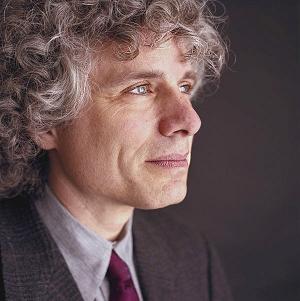Why Are Opposition Movements So Disorganized?
It’s becoming a familiar theme. An election is held somewhere in the developing world that is hotly contested. The opposition cries foul and demands a recount. Allegations fly as both camps dig in their heels and make their pleas before the international community. Protestors might take to the streets and arrests are made. Yet there is almost something of disputed election fatigue out there after watching the mock elections held in Afghanistan, Iran, and Gabon. Ukraine, whose polls are being held in January, may be the next in line.
I am baffled by how disorganized opposition movements are. Throughout the world there would be many more turnovers of power but for oppositions that are disorganized and divided. Which raises the question: If opposition leaders cannot even manage the egos and divisions within their own camps, how would they ever be able to manage a whole government bureaucracy, were they ever to take power?
On one hand, opposition groups have never had it so good. Social media and micro-blogging sites are virtually made for them, as events in Moldova and Iran have shown. The foreign press is sympathetic, to be the point of sycophantic (see Iran). Rarely are tough questions asked or answered (like, you know, what their candidate would do once in power?). Candidates like Abdullah Abdullah shell out big bucks to hire expensive PR firms with Beltway ties. The press, always sniffing for a Cinderella story line, also tends to hype their chances and every poll number that nudges upward. In Russia, the fawning coverage abroad of chess champion Gerry Kasparov last year obscured the fact that he was a dark-horse candidate who had zero shot at winning the presidency. Still, it made for good copy.
So they have the tools at their disposal and the press behind them. Then why do so many opposition movements fizzle and fail to acquire critical mass? The reasons are manifold: First, they tend to be big tent groups. Anyone with a grievance against the government identifies with the “opposition” in most countries. Yet when the only thing that unites the disparate camps of an opposition group is a visceral hatred of the regime in power, once the bogeyman is removed, as was the case in Ukraine and Georgia, these camps realize they have little in common, nor do their leaders get along that well. Egos inevitably clash. Sharp words are exchanged. Pretty soon, the movement fizzles or turns into something more menacingly than the regime it replaced (see Kyrgyzstan).
Second, there is an abundant lack of discipline. As anyone who has ever stepped foot in a non-profit can attest to, groups with shoestring budgets, barebones staff, and little oversight are often badly mismanaged. There is no discipline or message control. One reason the Bolsheviks won out over the Menshiviks in 1917 was the remarkable message discipline of the former (its penchant for violence didn’t hurt either).
Third, opposition movements suffer from something of a “Gorbachev syndrome” – their candidates are feted abroad but loathed at home. Usually the candidate reflects a small, usually wealthier, more educated segment of society. Oftentimes they come from academia or the arts (see Havel, Vaclav), lack an iota charisma, and thus not prepared for the sharp-elbowed world of politics. There is also what I call the “Howard Dean syndrome” – candidates who fire up younger, university students but fail to mobilize the older, less-educated masses outside of cities. These are candidates who might Tweet on occasion, but probably wouldn’t know the first thing on how to reform, say, the judiciary.
Finally, there is what I call the “deep pockets” factor. In many cases, voters reelect the incumbent not because he’s their preferred choice — often they can’t stand the bum — but because he’s already robbed the state coffers clean. They reckon he can do no more damage. Because the opposition comes to power with their pockets empty, voters suspect there’s more temptation for them to stuff their pockets and those of their pals, no matter how reformist or lofty-sounding their ideas may be. Better to reelect the devil that’s rich than the devil that’s broke. As an Uzbek pensioner, ahead of the 2005 reelection of Nursultan Nazarbayev in Kazakhstan, told the Atlantic Monthly: “We would prefer for Nazarbayev to stay for another seven years — in fact, for as long as he is living … If there is a new president, he will not stop stealing until his pockets are full.” I heard similar rationales to explain the reelection of President Mubarak in Egypt that same year.
This is not to downplay the real fears and hurdles opposition movements face in terms of being arrested, harassed, or worse, which limits their ability to organize effectively and get their message out there. Also I realize that disagreements are an inevitable feature of oppositions—even our own Founding Fathers were fiercely divided and ego-driven. But all too often, opposition movements fail to ever mobilize more grassroots support and win elections because of their own incompetence, disorganization and divisions.





